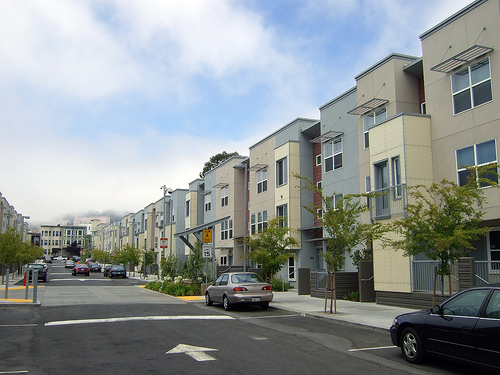Just as Mayor London Breed is admitting that the city can’t meet its affordable-housing mandates under state law, the city controller is suggesting that San Francisco reduce the level of below-market housing that for-profit developers are required to build.
In a report today, the controller suggested that the city cut the inclusionary affordable requirement almost in half, to just 12 to 16 percent. The current requirements are 21.5 to 23.5 percent, depending on whether the developers is building apartments or condos.

The report suggests that the lower rates stay in effect until 2026—and that the city should consider applying the lower rates to projects that have already been approved but are not under construction.
The reason: With the current affordability levels, most construction projects in the city are “not feasible.”
But wait: Even with the cuts, a lot of projects still won’t “pencil out.”
High-rise condominium prototypes (generally above 8 stories), and all apartment prototypes, would not be feasible at these inclusionary levels. Some low- and midrise condominium prototypes (below 8 stories) should be feasible with these reduced requirements. Within these recommended ranges, a greater proportion of individual low-rise condominium projects are likely to be feasible than would be the case for mid-rise condominium projects. Setting requirements in the lower portion of the recommended ranges would increase the ultimate share of mid-rise projects that are likely to be feasible.
So if we cut affordable housing in half, we might get some more small high-end condo projects, which will do nothing for the city’s affordability crisis. And not that many will get built anyway.
Let’s say the city cut the affordability requirements for all of the roughly 45,000 units that are now approved but haven’t broken ground. That means somewhere between 5,400 and 7,200 affordable units would be built, along with somewhere between 37,000 and 39,000 market-rate units.
The Housing Element calls for the city to permit and encourage construction of some 84,000 housing units, and 46,000 of them are supposed to be affordable. That’s 54 percent affordable housing.
With the controller’s estimate, we’re looking at less that 30 percent of that.
Nonprofits working with city subsidies would have to provide 38,000 new units in the next five years, at a cost of some $19 billion (or more, if we cut the inclusionary).
Meanwhile, there’s conclusive evidence that at anything less that about 40 percent affordability, market-rate housing makes the crisis worse.
The more you look into this, the less sense it makes.
Sort of like modern late-stage Capitalism, which is really the root of the housing crisis.



